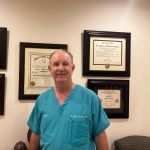Facelift surgeons can help you enjoy natural-looking results
A facelift surgeon in Charlotte NC can help you prepare for surgery and recovery to achieve the desired results. Facial rejuvenation procedures like facelifts and dental treatments often go hand in hand in the pursuit of a youthful and vibrant appearance. However, the question of whether it is safe to undergo dental procedures after a facelift is a pertinent one, involving considerations of timing, healing processes, and potential complications. In this article, we will delve into the intricacies of combining these procedures, offering insights from medical and dental experts to help you make informed decisions.
Understanding the Facelift Procedure
A facelift, or rhytidectomy, is a cosmetic surgical procedure designed to reduce the visible signs of aging in the face and neck. The surgery involves the removal of excess facial skin, tightening of underlying tissues, and redraping of the skin on the face and neck. This procedure can significantly improve the appearance of sagging skin, deep creases, jowls, and double chins, leading to a more youthful and refreshed look.
Recovery from a facelift typically involves a few weeks of downtime. Patients may experience swelling, bruising, and discomfort, which gradually subside over time. Full recovery can take several months as the tissues heal and settle into their new positions.
Dental Procedures: An Overview
Dental procedures encompass a wide range of treatments aimed at maintaining or improving oral health and aesthetics. These can range from routine cleanings and fillings to more complex procedures such as dental implants, root canals, and orthodontic work. Each type of dental procedure has its own recovery timeline and potential impact on the surrounding tissues.
The Interplay Between Facelifts and Dental Work
Given that both facelifts and many dental procedures involve manipulation of the facial tissues, understanding the interplay between these treatments is crucial for optimal results and patient safety. Key considerations include:
1. Timing of Procedures:
- Pre-Facelift Dental Work: Ideally, any extensive dental work should be completed before undergoing a facelift. This minimizes the risk of infection and ensures that any swelling or bruising from dental procedures does not interfere with facelift recovery.
- Post-Facelift Dental Work: If dental work is necessary after a facelift, it is generally advisable to wait until the initial healing phase is complete. Most surgeons recommend waiting at least 4 to 6 weeks before undergoing any dental procedures that could potentially disrupt the facial tissues.
2. Healing and Recovery:
The healing process after a facelift is crucial. Introducing dental procedures too soon can interfere with this process, leading to complications such as infection, increased swelling, or prolonged bruising. It’s essential to allow the facelift incisions and underlying tissues sufficient time to heal before subjecting them to additional stress.
3. Infection Risk:
Both facelifts and dental procedures carry a risk of infection. Undergoing dental procedures shortly after a facelift can increase this risk, as the body’s immune system is already focused on healing the surgical sites. Postponing dental work until the facelift sites have sufficiently healed reduces the likelihood of infection.
4. Anesthesia Considerations:
Facelift surgeries typically require general anesthesia or deep sedation, while dental procedures may involve local anesthesia or conscious sedation. The proximity in the timing of these different types of anesthesia should be managed carefully to avoid overloading the body’s systems.
Practical Recommendations
To ensure the best outcomes and minimize risks, follow these practical recommendations:
- Pre-Surgical Consultation:
Before undergoing a facelift, have a thorough consultation with your plastic surgeon and dentist. Discuss your plans for dental work and create a coordinated treatment plan that addresses the timing and sequence of each procedure.
- Clear Communication:
Maintain open communication between your plastic surgeon and dentist. This ensures both professionals are aware of your full medical history and can make informed decisions about your care.
- Follow Post-Operative Instructions:
Adhere strictly to the post-operative instructions provided by your surgeon. This includes guidelines on when it is safe to resume normal activities, including dental visits.
- Monitor Healing Progress:
Pay close attention to your healing progress after a facelift. If you notice any unusual symptoms such as excessive swelling, persistent pain, or signs of infection, contact your surgeon immediately.
- Plan Ahead:
If you anticipate needing significant dental work, try to schedule it well in advance of your facelift. This allows ample time for recovery from dental procedures before undergoing facial surgery.
Combining facial and dental procedures can enhance overall aesthetic results, but careful planning and timing are essential to minimize risks and ensure successful outcomes. Here are the key takeaways:
1. Complete Extensive Dental Work Before a Facelift:
Whenever possible, finish any significant dental treatments before undergoing a facelift.
2. Allow Adequate Healing Time:
Wait at least 4 to 6 weeks for minor dental procedures and up to 6 months for more invasive dental work after a facelift.
3. Coordinate Care:
Maintain clear communication between your plastic surgeon and dentist to create a cohesive treatment plan.
4. Monitor Your Recovery:
Follow post-operative instructions and monitor your healing progress carefully, seeking medical advice if you notice any issues.
By adhering to these guidelines, patients can achieve the best possible results from both their facelift and dental procedures, enjoying a harmonious and youthful appearance without compromising their health.
Hire the best facelift surgeon in Charlotte NC
Contact Dr. Sean Freeman at Only Faces, Charlotte’s most experienced rhinoplasty surgeon and top facial plastic surgeon, to schedule a consultation to find out what procedure is right for you. Call today.


